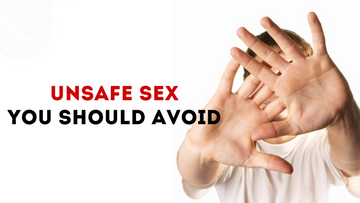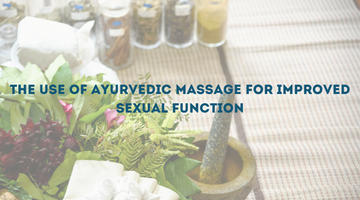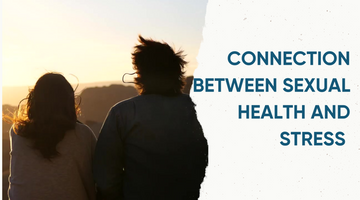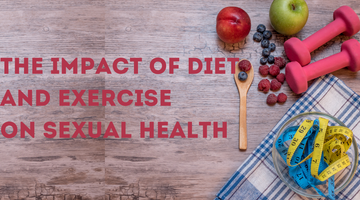
If you engaged in risky sexual behavior, you may have increased your risk of contracting an STI, HIV, or unintended pregnancy. It is advised to get tested if you believe you may have exposed yourself to HIV or another STI. Many STIs can be managed and treated successfully. Many STIs can worsen if left untreated and result in long-term health issues.
Consider taking PEP if you believe you have recently been exposed to HIV, within the last 72 hours. PEP is a four-week drug regimen that may help people avoid contracting HIV. It is only made available when there has been a significant risk of HIV exposure.
If you are concerned about an unintended pregnancy, you may want to act quickly and start using emergency contraception within 72 hours.
It is also important that you examine why you had unsafe sex and develop strategies so you don't place yourself or your partner at risk again. Talk to friends and family as they may be able to offer support and advice. Also consider talking to a health care professional such as a doctor, nurse, counselor, or sexual health worker. Choose an option that best suits you.
Risky sex is sex that may lead to infection of an HIV-negative individual. There are many ways to decrease the risk of HIV infection, like the partner living with HIV taking HIV medications (ART) every day, the HIV-negative partner using PrEP, or partners of any HIV status using condoms or other latex barriers during sex.
Blood, vaginal, or anal fluid, as well as semen, are all bodily fluids through which HIV can spread. The risk is decreased the less contact you have with them. These fluids pose the greatest risk in the vagina, anus, and rectum because of their sensitivity (ass). The thin and easily torn protective tissue there makes it simpler for the virus to enter your body. Tears and saliva (spit) pose less of a threat.
Without a condom, vaginal or anal sex is typically the riskiest.
To assist you and your partner in making decisions, the following list of sexual activities is arranged according to their level of risk:
Highly Risky Sex Types
- Without a condom, anal sex (penis in the anus)
- Lack of a condom during vaginal sex (penis in the vagina)
Low Risky Sex Types
- When used properly, condom use during sexual activity
- Use oral sex, but avoid ingesting semen
- Huge kisses
- Sharing sexually explicit objects that have been cleaned or covered with a fresh condom in between uses
You Might Develop STIs From Unprotected Sex
You or your sexual partners may be at risk for STIs as a result of unsafe sex. This includes any type of sexual contact, not just genital sex which includes anal, oral, vaginal, and some skin-to-skin contact.
When a sore or rash is present, certain STIs which are syphilis and genital warts can be transmitted through sex with an infected partner. Because some STIs, such as congenital syphilis and HIV, can be passed from mother to child both during pregnancy and at birth, unborn children are also at risk.
STIs can result in serious illness and long-term effects on your health, including pelvic inflammatory disease (PID) and infertility in both men and women if they are not treated.
There Are Many STIs. Some STI Types Are As Follows:
- Chlamydia
- Gonorrhoea
- Syphilis
- HIV
- Hepatitis A, B, and C,
- Genital Herpes
- Genital Warts
- Mycoplasma Genitalium
You and your sexual partners might not be aware that you have an STI because not all STIs have obvious symptoms. Safe sex practices are crucial because of this. For safer sex, use condoms.
The best defense against STIs is a condom, also known as a sheath or rubber. They function as a physical obstruction to stop the flow of bodily fluids.
Although there is no guarantee that condoms or other barrier methods will completely protect against STIs, when used properly, they can make sex safer.
Additional Advice For Safer Sex
Sex ought to be fun. Sexual activity should only take place when both you and your partner are prepared. You should feel respected and safe, and any form of sex needs to be consensual, which comprises:
- Inserting a penis into a vagina is known as vaginal sex.
- Anal sex is when you place your penis or other objects like dildos, fingers, or sex toys inside your partner's anus.
- Oral sex involves stimulating your partner's genitalia or anus with your mouth, lips, or tongue.
- You can practice safer sex in the following ways:
Openly discuss your sexual health with your partner. Tell the other person what you want to explore sexually and what your needs are.
- Do not have too many sexual partners.
- Take an STI test.
- Get treated if you have an STI
- Wait until you hear from a doctor that you are no longer contagious before engaging in sexual activity.
- Tell them if someone is making you feel uncomfortable or pressuring you to have sex.
- Sexual activity must be consensual in order to be legal, which also means respecting other people's choices if they say "no" or are too intoxicated to give their consent.
- When under the influence of drugs or alcohol, avoid having sex. You might make decisions you later regret because they can impair your judgment.
- In addition to using a condom, use other forms of birth control to prevent pregnancy.
- Avoiding sex is a good idea if your partner(s), has rashes, blisters, warts, sores, or cuts on their genitalia, mouth, or anus such as hemorrhoids and anal fissures
- Also if they have throat infections or untreated or inflamed piercings in their mouth or genitalia
- When a female is on her period.
Other Less Risky Sexual Behaviors
You don't have to have boring sex just because it's safer. Keep in mind that developing intimacy in a relationship requires time.
There are other ways to experience sexual pleasure besides having sex, such as foreplay and physical contact.
Other sexual behaviors that can lower your risk of STIs include:
- Kissing
- Cuddling
- Massage
Preventing Dangerous Situations
Your risk of engaging in unsafe sex can rise in certain circumstances. Avoiding situations where you can lower your risk of contracting an STI is preferable which consists of:
- Being intoxicated or high on drugs can impair judgment and make you feel pressured to have sex and convince you that it's okay "Just This Once."
- Believing that STI symptoms can be used to diagnose someone.
- It's acceptable to decline an invitation if you don't feel at ease there.
- Any sex that takes place without your permission
AADAR has always promoted the property of safety and hygiene for any kind of sexual activity. AADAR is men's only sexual platform with Ayurveda as its root of medications. With years of research and expert guidance, we look for safe and better sexual performance.
AADAR always has gone to treat sexual concerns naturally and our experts solve our issues without any hesitation. With the roots of Ayurveda, we have always solved sexual concerns naturally. AADAR’s MY PERFORMANCE collection has a range of products that solves all your sexual issues naturally without any side effects.
We have Health Experts who can easily connect with you and discuss your sexual concerns. You can consult your family doctor first to get the most accurate diagnosis, or you can contact our Health Expert or connect with us at +919867667699.




